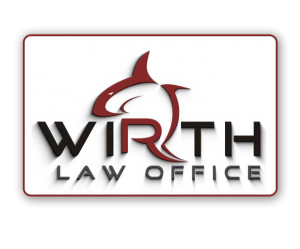Consult McGirt Attorney When Assistance Needed
Video Transcribed:
Is there a requisite blood quantum for relief under McGirt? I’m McGirt attorney James Wirth. And we’re talking about the requirement that there be a certain level of Indian blood in order to qualify for relief under the United States Supreme court precedent in the McGirt case.
So we’ve got a lot of these McGirt cases that are going before the court and we’ve got a lot of prosecutors that are not wanting to dismiss these cases, that others good argument, that the state lacks subject matter jurisdiction over them.
So they’re coming up with a lot of arguments to try to stop that from happening. And one of them is to say, is that there’s got to be a certain level of Indian blood in order for them to qualify under McGirt. And the prosecutors that are making this argument, are relying upon the case of Goforth, which is a case from the Oklahoma Court of Criminal Appeals in 1982.
And what that case says is that there has to be a quote, “Significant percentage of Indian blood in order for the state to lack jurisdiction.” But there’s a lot of other cases that use different language and it’s interesting because the Goforth case says a significant percentage of Indian blood, but we also have the LeBoeuf case that says a “Sufficient degree of Indian blood.” And then we’ve got the Vialpando case that says a “Substantial amount of Indian blood.”
And then we’ve got the Diaz case that says “Some Indian blood.” Okay, so prosecutors are going with the language that most favors them. That’s the one from the Oklahoma Court of Criminal Appeals in 1982 that says that we need a significant percentage of Indian blood.
And then for defendants that are requesting relief under McGirt that don’t have a substantial amount of Indian blood, they are objecting to dismissal and saying the court does have jurisdiction because they don’t have enough Indian blood.
However, that decision they’re relying upon is just from the Oklahoma Court of Criminal Appeals, whereas the LeBoeuf case is the Ninth Circuit opinion of Federal Appellate Courts, the Vialpando case is out of Wyoming. And then the most important case we have is the United States v. Diaz that is a Tenth Circuit case, Oklahoma is in the Tenth Circuit, so this is precedent and it’s from 2012. So it’s both a higher court in terms of precedential value and it is a more recent decision.
So we see courts relying on Diaz and we believe that the Oklahoma Court of Criminal Appeals, rather than going along with their prior language from 1982 is going to go along with the language that they’ve been given from the Tenth Circuit and say that it just has to be some Indian blood.
 No particular quantity as long as there is some, however, that can still reduce by some amount that people that are entitled to relief, because we do have Freedmen, who were members of the tribe granted membership after the Civil War that may not have any blood quantum. But we do believe, at least we’re going to have the court found that any amount of Indian blood, as long as it can be proven is enough to get relief under McGirt.
No particular quantity as long as there is some, however, that can still reduce by some amount that people that are entitled to relief, because we do have Freedmen, who were members of the tribe granted membership after the Civil War that may not have any blood quantum. But we do believe, at least we’re going to have the court found that any amount of Indian blood, as long as it can be proven is enough to get relief under McGirt.
There’s going to be a little bit of question of how you determine the amount of Indian blood, the easiest way in order to get an accomplishment of dismissal of the case or showing that the court has a lack of jurisdiction over a Native American is to show that they have a lineal ascendant who is on the Dawes Rolls and the Dawes Rolls lists that person’s percentage of Indian blood and then that’s divided down by how many ascendances there are before you get to the defendant involved.
So if you’ve got somebody who’s on the Dawes Roll that is your great grandfather that was 100%, then you halve that, and then you halve that and you’ve got about a quarter. So and that’s the amount that’s going to show on your CDIB card. So that’s pretty clear cut, but what if you don’t have that?
Is it sufficient to do DNA testing? Those are issues that have to be decided, but as far as the question, is there a requisite level of blood? I think the best theory right now is going to be that the Oklahoma Court of Criminal Appeals and other courts are going to go along with the Diaz decision and require at least some level of Indian blood, but not any quantifiable amount.
Just as long as it’s some amount, even if it’s 1/28, or even less than that, as long as it is some amount listed that is likely to be found to be enough. If you’re in a situation where you don’t have proof of Indian blood or you’re Freedmen, then you’re going to want to talk to somebody more specifically about your circumstances. If you want to talk to somebody in my office about that, you can do so by going to makeloteasy.com



